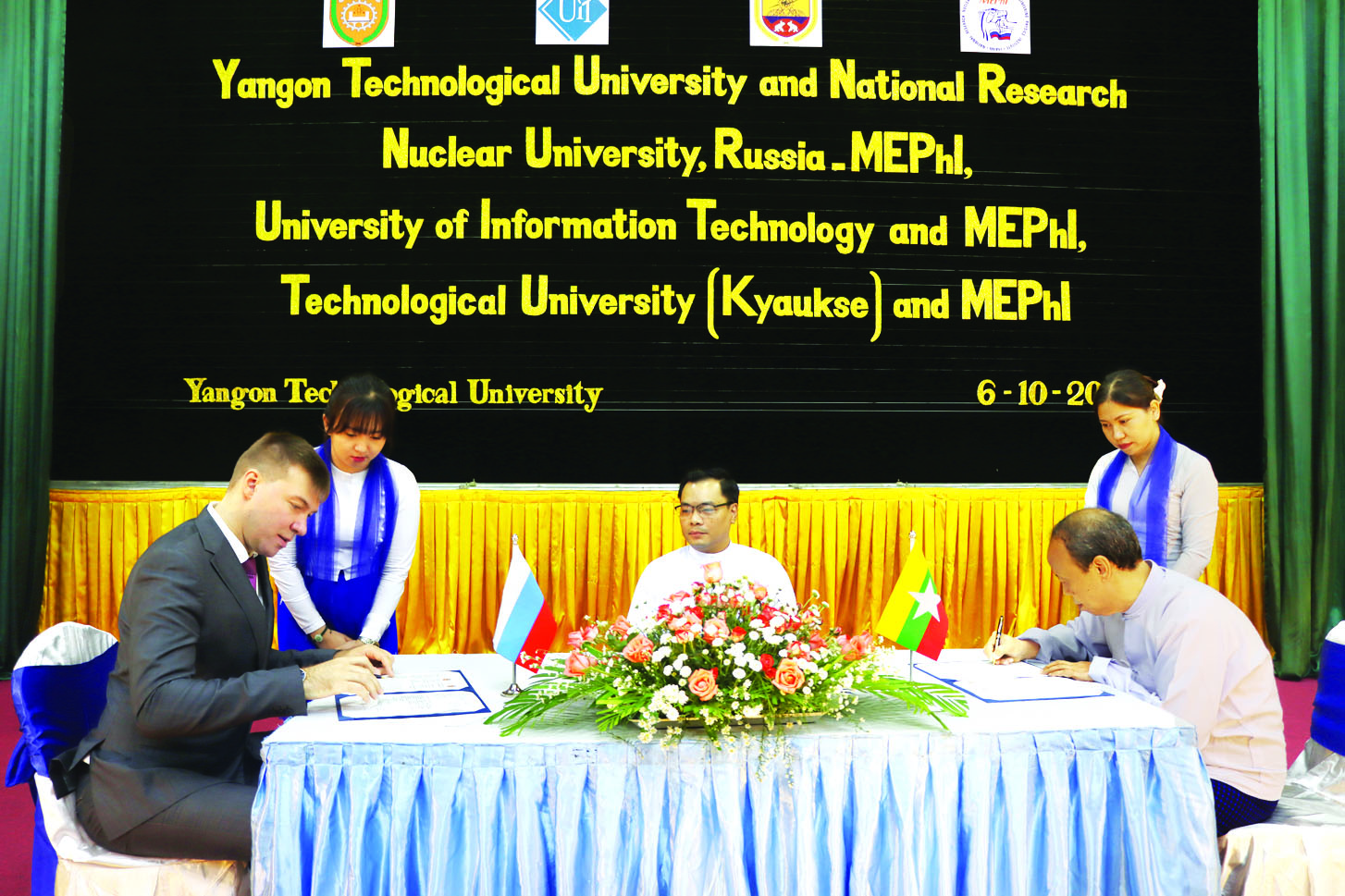Faced with deepening energy and fuel shortages since the coup, the Myanmar military regime has become heavily reliant on Russia to help solve the crisis.
On Friday, junta Energy Minister Ko Ko Lwin met in Russia with a Roscongress Investment-RCI delegation—led by an official identified by junta media as Segey Vladimirovish—to discuss matters related to the energy sector. The same day, the junta Deputy Science and Technology Minister Dr. Aung Zeya and the pro-rector of Russia’s National Research Nuclear University signed memoranda of understanding. The agreements were signed between Russia’s National Research Nuclear University and Yangon Technological University, Yangon University of Information Technology, and Kyaukse Technological University.
Segey Vladimirovish and Ko Ko Lwin, who was part of the 71st intake of the Defense Services Academy, discussed construction of an oil refinery in Myanmar, as well as an oil port that can handle large oil tankers, and acceleration of cooperation in the energy sector. The regime, according to Ko Ko Lwin, has assigned focal persons in every energy sub-sector to ensure more effective cooperation, and the junta minister urged the Russian side to do the same to facilitate cooperation.
The discussions come as Myanmar is facing severe shortages of fuel and serious blackouts. Fuel prices have declined since the regime arrested and interrogated fuel importers, but people find it even more difficult to buy fuel now as filling stations are not selling petrol, saying they are out of stock.
Ko Ko Lwin’s visit to Russia was his first since he became energy minister in August during a reshuffle of Min Aung Hlaing’s regime. He was attending the Russian Energy Week International Forum in Russia.

Before his visit to Russia, Ko Ko Lwin hosted Russia-Myanmar Association for Friendship and Cooperation chief Anatoly Bulochnikov in Naypyitaw in the last week of September for talks on potential cooperation in the oil and gas sector.
Ko Ko Lwin also wooed investors at the Shanghai Cooperation Organization (SCO)’s first energy forum in Kazakhstan from Oct. 3-6. The SCO is dominated by Russia and China.
The minister has stressed that Myanmar needs investment from partner countries to meet its power requirements. He also sought Kazakhstan’s help in production of electricity using charcoal.
The regime has been collaborating with Russia’s state-owned nuclear corporation Rosatom after opening the country’s first nuclear information center in Yangon early this year.
Last month, junta Deputy Science and Technology Minister Dr. Aung Zeya invited Chinese collaboration with Myanmar on research and human resource development related to the peaceful use of nuclear technology.
At the signing of agreements with the pro-rector of Russia’s National Research Nuclear University on Friday, Dr. Aung Zeya said he believed cooperating with the Russian university will help Myanmar turn out technicians with expertise in nuclear energy and technology. The deputy minister vowed to strengthen cooperation with Russian nuclear technology academies.
Myanmar graduates of Russian universities and undergraduates at Russian universities studying subjects related to nuclear technology, along with deputy rectors from Russian universities and ROSATOM officials, met at the nuclear information center in Yangon in August.
Coup leader Min Aung Hlaing’s promise that nuclear technology will be used peacefully has been treated with skepticism because of the ruthless terror campaign he has overseen since the 2021 coup. Many believe he is pursuing the nuclear dream of his predecessors, the heads of Myanmar’s previous military dictatorships.
Since Min Aung Hlaing met Russian President Vladimir Putin last year, cooperation between the two pariah nations has increased by leaps and bounds.

















